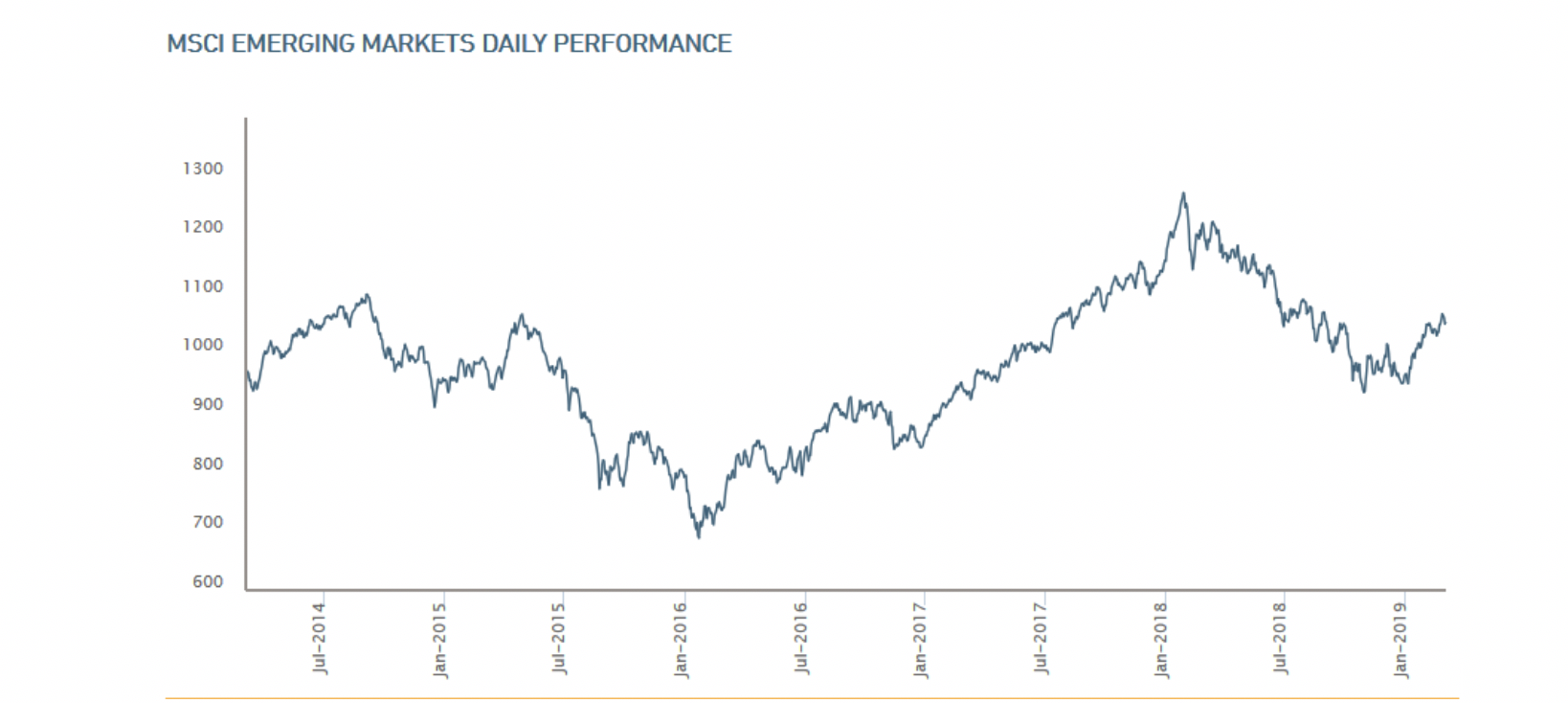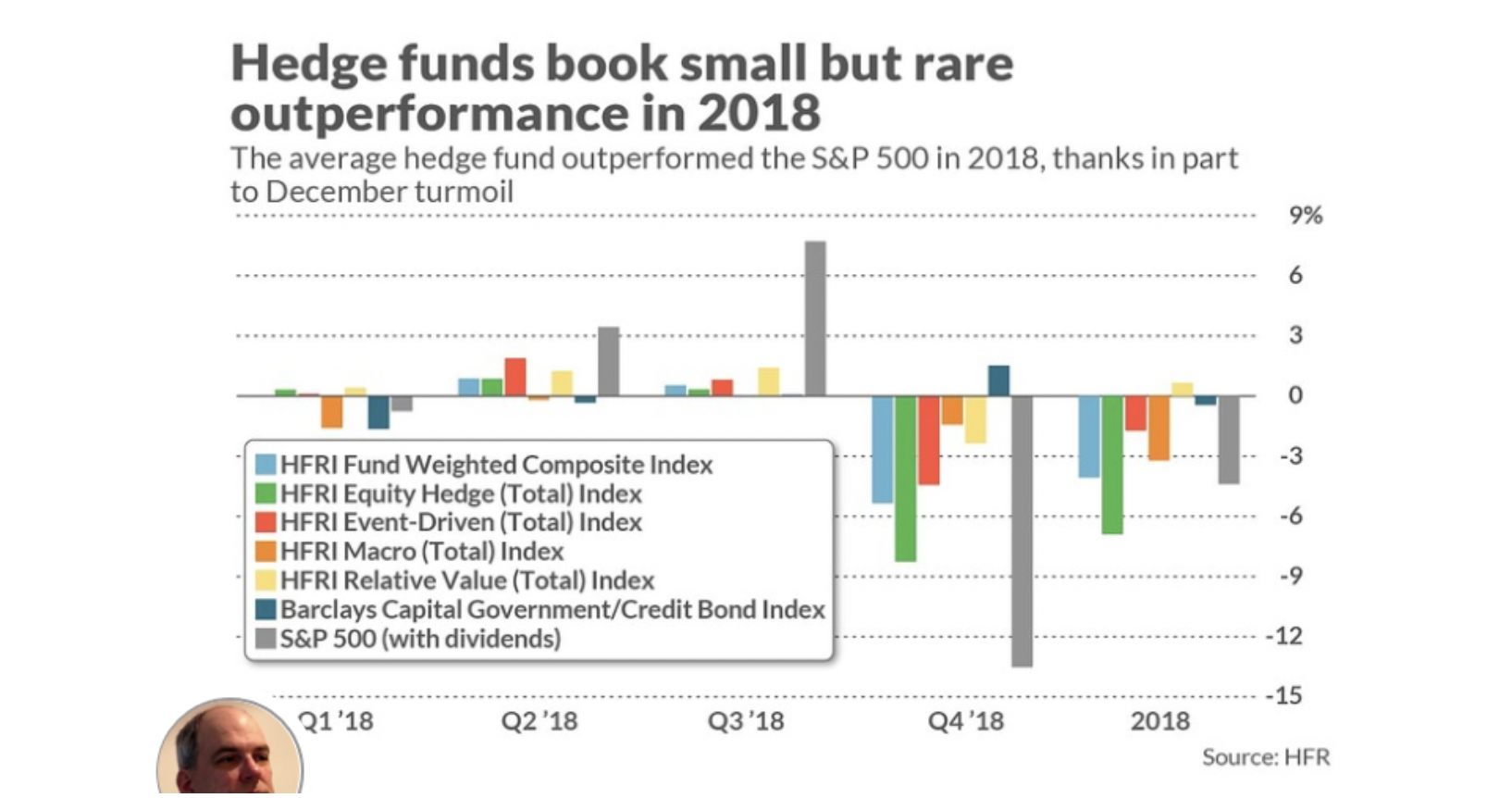China’s stock markets were the worst performing in 2018 following the breakout of a trade war that wiped out $2.4 trillion from the markets. Thankfully, upbeat negotiations between Washington and Beijing have helped turn the situation around and catapulted Chinese stocks to the best performing equity market this year.
Yet, Chinese markets are about to get even hotter, thanks to big bets coming their way.
MSCI Inc., the world’s oldest and largest provider of global market indexes, plans to boost the weighting of Chinese onshore markets index by nearly fivefold thanks to the Chinese stock market boom. MSCI has announced plans to increase China’s weighting from the current 0.7 percent to 3.3 percent 0.7 percent in three steps between May and November.
That equates to more than $46 billion that’s poised to pour in from funds that track the gauge. Chinese equities already take up nearly a third of the MSCI Emerging Markets Index’s weighting with Tencent Holdings, Alibaba Group, China Construction and China Mobile being among the top 10 constituents.
Chinese equities have climbed nearly 20 percent in the year-to-date while the MSCI Emerging Markets Index has gained nearly 10 percent in the timeframe.

(Click to enlarge)

(Click to enlarge)
Source: MSCI
Positive trade talks
China-focused ETFs have also been a revelation, with the Xtrackers Harvest CSI 300 China A-Shares ETF racking up gains of nearly 30 percent in the year-to-date.

(Click to enlarge)
Source: CNN Money
As of June 2018, more than $1.8 trillion of investments followed the MSCI Emerging Markets Index. Goldman Sachs, however, estimates that $70 billion could ultimately flow into China as active funds follow MSCI’s asset allocation.
That’s certainly a huge turnaround from last year when the Shanghai Composite tanked 25 percent. And it’s all down to the tremendous progress that has been made in this year’s trade negotiations between the US and China following Donald Trump’s 90-day trade war truce. On Monday, White House economic adviser Kevin Hassett revealed that US Trade Representative Robert Lighthizer has made good progress in talks with China and a deal was looking increasingly possible. On Sunday, Trump tweeted that trade talks were progressing well and that he was delaying plans to impose 25 percent tariffs on Chinese imports while requiring China to lift all tariffs on US agricultural products.
Related: Lending: The Good, Bad, And Ugly
The WSJ has reported that Trump and his Chinese counterpart Xi Jinping are expected to hold a summit around March 27 to finalize a deal though no confirmation has been made as yet.
Passive funds regain upper hand
“There's no doubt in my mind that the S&P 500 will do better than the great majority of professional managers achieve for their clients after fees”…
That was a quote by legendary investor, Warren Buffett, after he collected winnings from a decade-old wager that saw him comfortably beat a basket of hedge funds. Hedge funds have a history of underperforming passive funds and index funds more often than not. But in 2018, they scored a rare victory after besting the S&P 500 mostly due to an end-of-year market meltdown.
According to data by HFRI Indices, the average fund declined 4.07 percent last year thus beating the S&P 500 Index’s (SPY) 4.39 percent fall. That marked the first time hedge-funds outperformed the market since 2008, when they fell 19.03 percent vs. a -37 return by the S&P 500.

(Click to enlarge)
Source: MarketWatch
But a casual glance at the charts tells you that active funds are unlikely to do an encore this year. The S&P 500 ETF is already up 11.66 percent vs. 3.50 percent return by the HFRI Weighted Composite Index.
The Shanghai Composite Index (SSEC) has been even more outstanding with a 21.4 percent YTD return.
The comparison gets even worse when you consider that hedge funds charge much higher fees which they claim are justified by their ability to outperform the market when the going gets murky. But a crowded field and the easy availability of cheaper, passively managed index-tracking products means that tools like the SPY and SSEC will remain firm favorites with the investment community.
By Alex Kimani for Safehaven.com
















